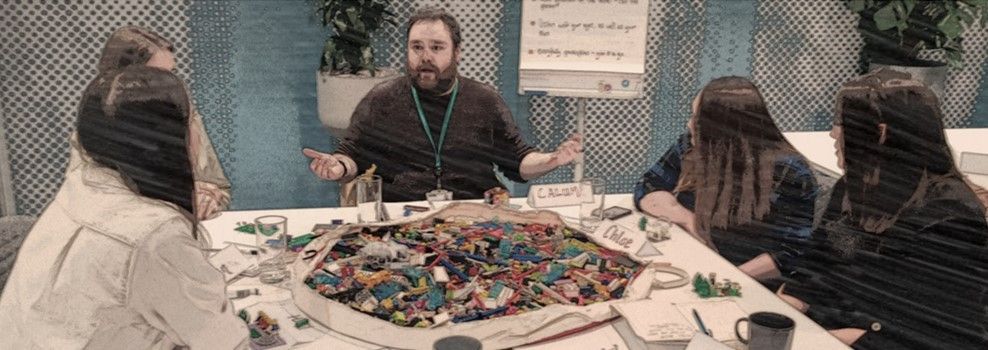What if we don't change at all and something magical just happens?
The future of work consists of learning a living Marshall McLuhan
This month the UK Government announced a Future of Work review that should “build on existing government commitments” and “make recommendations to guide long-term, strategic policy making on the labour market”. The purpose is to now consider work in the context of COVID-19 easing restrictions, post-Brexit, and the Levelling Up agenda.
It was back in July 2017 when the Good Work review was published by Matthew Taylor. It was recommended in this paper that organisations should have been pursuing the types of activity and change to work that we now see today, considering the impact COVID-19 has had. The ‘7 steps towards fair and decent work’, Taylor says back in 2017, are realistic to develop and fulfil. Two points stand out:

Why did it take a global pandemic to kick us in to gear?
Whether you agree or disagree, the government responded to some of Taylor’s review, tackling employment status, contracting, minimum wage issues, employment tribunals etc. but many of the findings in the Good Work paper are not easily addressed through legislation. It requires business leaders to do more when it comes to the employer/employee relationship. Point 4 in the 7-steps:

How good are we at listening to our employees?
In 2014 the UKCES, 3 years before Taylor published his report, highlighted to government and business the trends, and potential disruptions, for the future of work. Desire for work-life balance and changing working environments were identified as two of the thirteen most influential on UK jobs by 2030. There are no doubt many examples where organisations acted upon this, sensing the future and re-organising according to their strategic intentions. Did these organisations reap the reward when COVID-19 forced the hand for all?
The reports, and many others, all pre-COVID, cite the required skills of the future workforce too. Technical skill gaps are apparent in some sectors but there is commonality surrounding the research on the softer skill requirements. Taylor draws attention to “human perception, creativity and social intelligence” further highlighting “non-cognitive skills such as relationship building, empathy and negotiation”. The UKCES mention creativity, personal agility, and adaptability. They reference individuals being able to connect, collaborate and be self-led when it comes to learning.
Pearson talk about the future workforce requiring interpersonal skills, high order cognitive (fluency of ideas and active learning), and systems thinking (recognise, understand, and can act on interconnections/feedback loops). If you want to read more on systems thinking, pick up Peter Senge’s book, The Fifth Discipline.

We’ve abruptly entered the world of hybrid working but how equipped are our teams to deal with this new infrastructure? Can they think ‘system’ when there is greater physical detachment from others that impact it? How can we create an environment in which social intelligence flourishes?
There is no simple answer of course and each organisation must consider what all this means for them – not just pick up a blueprint from a consultancy firm or copy the competition.
Here's a few things we think you can do now to help gather insight, engage in sensemaking and respond to Taylor’s point 4 that introduces practices where everyone’s voice is heard.
- Always be on the lookout for opportunities where you can encourage creativity, get people thinking ‘systems’ and connecting with each other. What more could you do in the weekly team meeting? How could you enhance the way you communicate? What feedback mechanisms exist and are they good enough? We’ve shown how the LEGO® SERIOUS PLAY® methodology can broaden people’s perspectives and draw out ideas that would have otherwise been unheard.
- Include as many people as you can when gathering insights, determining your strategic intentions, and considering the future. Do you always hear the loudest voices or from the person that always volunteers? Are there forgotten/untapped groups of workers in your organisation? The LEGO® SERIOUS PLAY® methodology provides a platform to hear from everyone, even if they are not directly related to the situation. These different views can enhance the discussion and solutions.
- Be clear on the narrative. Humans crave certainty but some things happen suddenly, without warning. Leaders can still give certainty whilst being uncertain – “I do not have the answer for you right now, but I will communicate with you daily with an update”. How effective are your current communication channels? Is hybrid working for the business, the customer, and the employee? We’ve shown how the LEGO® SERIOUS PLAY® methodology can help draw out concerns to help shape a better narrative and future action.

We look forward to the conclusions surrounding the Future of Work Review but doubt anything magical will materialise. Instead, we encourage organisations to trust that you have the answers already – it’s about reaching them. You know your business. You own your strategy. The culture is yours.
Visit www.prometheanplay.co.uk to find out more.
[photo courtesy of unsplash.com / credit to Sigmund. LEGO® SERIOUS PLAY® picture our own following a recent session]
